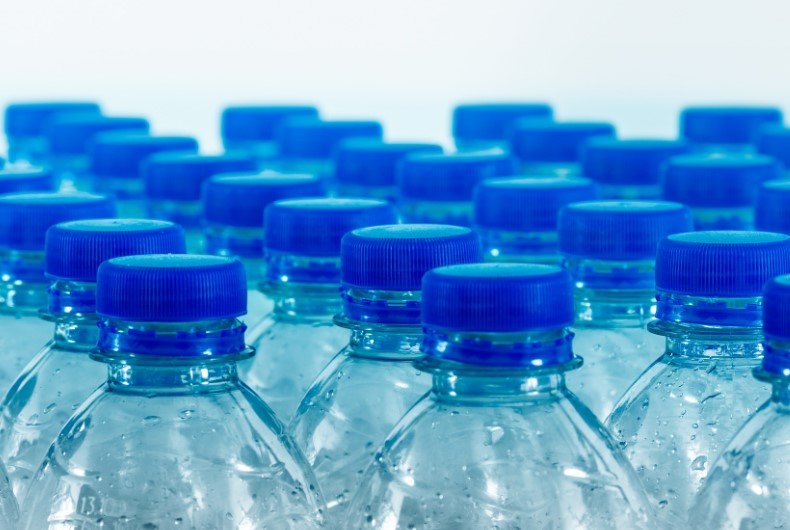Georgia is set to limit the purchase of drinks in plastic bottles for government offices and the hospitality industry. This move, announced by the Ministry of Environmental Protection and Agriculture, aims to cut down on plastic waste and will take effect in stages starting in 2026.
The restriction targets budget organizations, ministries, and hotels, pushing them toward greener options like glass or reusable containers. Officials say this is a key step in fighting pollution that harms rivers, wildlife, and public health in the country.
Details of the Upcoming Ban
The new rule focuses on stopping the sale and use of plastic bottled beverages in public institutions and the hospitality sector. It builds on earlier efforts to reduce single-use plastics.
According to recent announcements, the ban will apply to all government-funded groups, including schools and offices. Hotels, restaurants, and cafes will also need to switch away from plastic bottles for drinks like water, soda, and juices.

Business leaders met with ministry officials to discuss how to roll this out smoothly. They agreed to keep talking to avoid big disruptions.
The plan includes fines for those who do not follow the rules, though exact amounts are still under review. This follows a pattern of phased changes, giving time for adjustments.
Why Georgia is Taking This Step
Plastic pollution has become a major issue in Georgia, with local reports showing the country throws away millions of plastic items each year. Studies estimate about 612.5 million single-use plastics, such as bottles and cups, end up as waste annually, adding up to thousands of tons.
This waste clogs landfills, pollutes the Black Sea coast, and affects tourism. The government wants to protect the environment and boost recycling rates, which are low compared to neighbors like Turkey.
Deputy Minister Solomon Pavliashvili stressed the need for balance between green goals and business needs. He noted that plastic harms health by leaking chemicals into soil and water.
Recent floods in the region have highlighted how plastic trash worsens natural disasters. By cutting plastic use, Georgia hopes to lower these risks and meet international climate targets.
Experts point out that similar bans in other countries have led to cleaner cities and less ocean trash. This initiative ties into global pushes against single-use items.
Impact on Businesses and the Economy
The hospitality sector, a big part of Georgia’s economy, faces changes. Hotels might need to install water stations or buy bulk drinks in eco-friendly packaging.
Some owners worry about higher costs at first, but others see chances to attract green tourists. Tbilisi’s hotel association plans training on sustainable practices.
Here are key ways the ban could affect daily operations:
- Switch to reusable bottles or dispensers in rooms and events.
- Potential rise in glass bottle imports, supporting local suppliers.
- Opportunities for new jobs in recycling and green tech firms.
- Reduced waste collection costs for cities over time.
Small businesses get extra time to prepare, with the full ban hitting in 2026. Larger chains must comply sooner.
Government aid might include grants for switching equipment. This could spark innovation, like apps for tracking plastic-free supplies.
Timeline of Plastic Regulations in Georgia
Georgia has been building its anti-plastic policies over years. The latest ban fits into a series of steps to clean up the environment.
| Year | Regulation | Key Details |
|---|---|---|
| 2019 | Plastic Bag Ban | Banned production and sale of thin plastic bags; thicker ones phased out later. |
| 2023 | Expanded Single-Use Limits | Restricted plastic straws and cutlery in food services. |
| 2026 | Plastic Bottle Restriction | Bans purchases in state sectors and hospitality; focuses on beverages. |
| 2027 | Full Review | Planned check on effectiveness, with possible wider bans. |
This table shows a steady push toward less plastic. Each step has cut waste by noticeable amounts, based on ministry data.
Global Context and Similar Efforts
Countries around the world are tackling plastic waste too. The European Union aims to ban many single-use items by 2030, inspiring Georgia’s moves.
In nearby Armenia, a similar bottle restriction started last year, leading to a 20 percent drop in plastic litter. Kenya’s strict bag ban since 2017 has cleaned beaches and boosted wildlife.
These examples show bans can work without hurting growth. Georgia’s plan aligns with United Nations goals for sustainable development.
Environmental groups praise the step but call for more public education. They suggest campaigns to teach people about recycling at home.
What to Expect Next
Officials will hold more meetings with businesses to fine-tune the rules. Public input sessions are set for early 2026.
The ministry plans to track progress with yearly reports on waste reduction. If successful, the ban might expand to retail stores.
This could set an example for other nations in the Caucasus region. With climate change speeding up, such actions matter more than ever.
Share your thoughts on this ban in the comments below. Have you seen plastic waste issues in Georgia? Let others know by spreading this article on social media.
